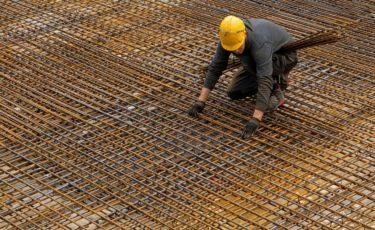Recent Release | 16 Nov 2022
Disrupt or die – Australia’s construction industry is at a crossroads

Construction Consulting Team

In 2020 the Australian Constructors Association commissioned BIS Oxford Economics to report on the opportunity cost of the poor productivity performance of Australia’s construction industry since 1990. The findings from the report have since been used to support the association’s advocacy efforts. Recognising the significant change to the construction landscape over the past few years, in September 2022 the Australian Constructors Association commissioned BIS Oxford Economics to update the data. This document reports on the latest findings.
In the eyes of the next generation of workers, construction is an industry that is stuck in the past. More businesses fail in construction than any other industry and, as an industry that operates on wafer-thin margins, workers are under pressure. They work long hours, suffer high-stress levels and are six times more likely to die from suicide than a workplace incident. Diversity is low and women make up only 12 per cent of the workforce.
In a recent survey less than one-third of Gen Z respondents said they would consider a career in the built environment. The industry has no choice but to transform, if for no other reason than to maintain a workforce large enough to deliver the substantial pipeline of work it is being called on to deliver. The demise of Australia’s construction industry is of national significance. Construction contributes 7 per cent of GDP and employs almost 1 in 10 of the working population.
This is the very industry called upon to rebuild Australia’s economy following the COVID pandemic. It is vital to the health of the economy and, importantly, the quality-of-life Australians enjoy. The link between improved productivity and industry sustainability is strong. Improvements to the industry’s productivity performance could save Australia $47 billion annually. Savings of this magnitude would go a long way in improving Australia’s budget bottom line and establishing Australia’s construction industry as a worldwide leader representing best practice. Government, industry and unions all agree on the opportunity and, more importantly, the need for change. Incremental change and 10-year horizons are out. To keep the industry alive it must transform, and it must transform now.
About the team
Our consulting team at Oxford Economics Australia are the world’s leading analysts of the global infrastructure construction sector. They combine their expert insight with our state-of-the-art economic models and tools to answer the crucial questions facing our clients. The lead consultant on this project was:

Adrian Hart
Associate Director, Infrastructure Construction, OE Australia
You might be interested in

The Construction Productivity Challenge in Australia
Delve into the state of construction productivity in Australia. Understand the factors affecting growth and how innovation can transform the industry for the better.
Find Out More
The Next Chapter for Rail: From Megaprojects to Maintenance and Skills
Blog Disrupt or die – Australia’s construction industry is at a crossroads Preparing Australia’s Rail Workforce for a Future Beyond Construction The infrastructure investment boom has dramatically transformed Australia’s rail sector. Over the past decade, we’ve seen extraordinary progress-from expanding metro networks to constructing major freight and regional rail projects. As I shared during my…
Find Out More
Global Construction Outlook Q2 2025
Reduced US tariffs are expected to support private sector activity, and we have increased our assumed proportion of total government investment being directed towards civil engineering construction work.
Find Out More
Construction Outlook, Q2 2025 in New Zealand
We forecast total construction work done to decline 4.3% in 2025, down from our previous forecast of -3.9%. This downgrade comes mostly as a result of disappointing residential and non-residential approvals over Q4 2025, in addition to higher engineering construction taking place over Q4 2024 resulting in a small growth downgrade due to base effects.
Find Out More